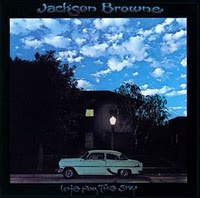 One of those artifacts that sort of sum up the 1970s for me, along with the films Annie Hall, Nashville and Three Women. Like those movies, Late for the Sky deals with the aftermath of a romance in dreamy, almost surreal style. If you’re looking for rock, look elsewhere; but if you lean to the Nick Drake/Tim Buckley end of the singer-songwriter spectrum and you’ve been put off by Browne’s reputation for cloying navel-gazing, then put your prejudices aside and listen to this record. –Brad
One of those artifacts that sort of sum up the 1970s for me, along with the films Annie Hall, Nashville and Three Women. Like those movies, Late for the Sky deals with the aftermath of a romance in dreamy, almost surreal style. If you’re looking for rock, look elsewhere; but if you lean to the Nick Drake/Tim Buckley end of the singer-songwriter spectrum and you’ve been put off by Browne’s reputation for cloying navel-gazing, then put your prejudices aside and listen to this record. –Brad
Album Reviews
Tears For Fears “The Hurting” (1983)
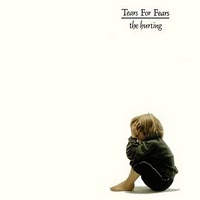 Even though I was well past the teenage angst phase when The Hurting was released it still managed to strike a mighty big chord. If you thought that electronic pop was nothing more than lightweight froth, then this album will come as something of a shock. This is as close as music gets to defining the nightmare that is adolescence. It is amazingly depressing yet musically uplifting. The melancholic atmosphere is palpable especially on gruesome downer tracks like “Watch Me Bleed” and “Start Of The Breakdown” which are perfect fodder for manic-depressives. For my money this is the only Tears For Fears album worth owning. Here they revel in an unrefined talent combined with a pristine sound which would later be soiled by over production on the likes of Songs From The Big Chair. All the songs on The Hurting have been penned by Roland Orzabal and I read somewhere that the album is a reflection of his troubled childhood. So, while I could relate to this from a teenage perspective, Orzabal was suffering through this at a much younger age – which gives the album an even more harrowing edge. As he says “memories fade but the scars still linger”. –Ian
Even though I was well past the teenage angst phase when The Hurting was released it still managed to strike a mighty big chord. If you thought that electronic pop was nothing more than lightweight froth, then this album will come as something of a shock. This is as close as music gets to defining the nightmare that is adolescence. It is amazingly depressing yet musically uplifting. The melancholic atmosphere is palpable especially on gruesome downer tracks like “Watch Me Bleed” and “Start Of The Breakdown” which are perfect fodder for manic-depressives. For my money this is the only Tears For Fears album worth owning. Here they revel in an unrefined talent combined with a pristine sound which would later be soiled by over production on the likes of Songs From The Big Chair. All the songs on The Hurting have been penned by Roland Orzabal and I read somewhere that the album is a reflection of his troubled childhood. So, while I could relate to this from a teenage perspective, Orzabal was suffering through this at a much younger age – which gives the album an even more harrowing edge. As he says “memories fade but the scars still linger”. –Ian
The United States of America (1968)
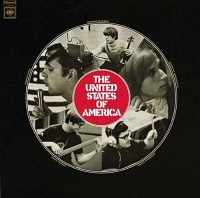 I first discovered this LP in a Capitol Hill thrift store in the mid-90’s, when it was still fairly easy to find such LP’s in thrift stores. Thumbing through the Broadway musical soundtracks and Herb Alpert LP’s, I came across a battered copy of this curiosity. Its cover suggested a bunch of M.I.T. graduate students performing research on how to be in a rock band, and the musical credits listed on the back were even more perplexing. The bassist played a fretless; there was no guitarist but there was an electric violin player. (And just what the hell was a “ring modulator” anyway?) I couldn’t tell how old the record was, but the hairstyles and packaging suggested about 1968 (I turned out to be right). The $3 sticker was enough incentive, so I bought it. Playing it when I got home, my reaction to its aural content was that of even more bafflement. It was a strange and shifting cacophony from start to finish: calliopes, pounding drums, tape loops, haunting ballads about clouds and deceased revolutionaries, Gregorian chants, chamber strings, Zappaesque satire, Salvation Army brass bands, and a barrage of otherworldly electronic bleeps and warbles. At first I wanted to throw it across the room, but within a few days it was all I was listening to and all I would listen to for the next month. We all know about these records, records that we happen upon by accident and which we initially don’t understand but which end up changing the very core of our being and defining our musical tastes. For these records, “love it or hate it” isn’t an apt descriptor. Like organ transplants, they are either violently rejected or they become a part of us. For me, The United States of America’s sole LP is one such record. –Richard
I first discovered this LP in a Capitol Hill thrift store in the mid-90’s, when it was still fairly easy to find such LP’s in thrift stores. Thumbing through the Broadway musical soundtracks and Herb Alpert LP’s, I came across a battered copy of this curiosity. Its cover suggested a bunch of M.I.T. graduate students performing research on how to be in a rock band, and the musical credits listed on the back were even more perplexing. The bassist played a fretless; there was no guitarist but there was an electric violin player. (And just what the hell was a “ring modulator” anyway?) I couldn’t tell how old the record was, but the hairstyles and packaging suggested about 1968 (I turned out to be right). The $3 sticker was enough incentive, so I bought it. Playing it when I got home, my reaction to its aural content was that of even more bafflement. It was a strange and shifting cacophony from start to finish: calliopes, pounding drums, tape loops, haunting ballads about clouds and deceased revolutionaries, Gregorian chants, chamber strings, Zappaesque satire, Salvation Army brass bands, and a barrage of otherworldly electronic bleeps and warbles. At first I wanted to throw it across the room, but within a few days it was all I was listening to and all I would listen to for the next month. We all know about these records, records that we happen upon by accident and which we initially don’t understand but which end up changing the very core of our being and defining our musical tastes. For these records, “love it or hate it” isn’t an apt descriptor. Like organ transplants, they are either violently rejected or they become a part of us. For me, The United States of America’s sole LP is one such record. –Richard
Fairport Convention “Unhalfbricking” (1969)
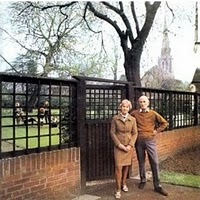 While Liege And Lief may very well be a more revolutionary and influential album than Unhalfbricking, I’m sure I’m not alone in thinking the latter even better than the former. As both their last album as “England’s Answer To Jefferson Airplane” and their first to move decisively towards traditional folk (and to feature Dave Swarbrick), it straddles both camps effortlessly. Of course both Richard Thompson and Sandy Denny contribute two excellent songs each, of which my favourite has always been the jazzy “Autopsy” (what a wonderful drummer Martin Lamble was!). Of course, “Who Knows Where The Time Goes” isn’t exactly a throwaway either. There’s no less than three Bob Dylan tracks, all of them unreleased by Bob in 1969, including the very moving “Percy’s Song”, featuring ex-Fairporter Ian Matthews on harmony vocals. (While this song had been recorded while he was still in the band, it began a tradition of ex-members making cameo appearances on new Fairport records that has made them see less like a band and more like a family.) The stunner, though, has to be the wonderful performance of the traditional song “A Sailor’s Life”, reputedly recorded in one take. I’ll take this one over all of Liege And Lief, thanks. Unlike some of Fairport’s other records, this one hasn’t aged a bit, and there’s absolutely no filler tracks. –Brad
While Liege And Lief may very well be a more revolutionary and influential album than Unhalfbricking, I’m sure I’m not alone in thinking the latter even better than the former. As both their last album as “England’s Answer To Jefferson Airplane” and their first to move decisively towards traditional folk (and to feature Dave Swarbrick), it straddles both camps effortlessly. Of course both Richard Thompson and Sandy Denny contribute two excellent songs each, of which my favourite has always been the jazzy “Autopsy” (what a wonderful drummer Martin Lamble was!). Of course, “Who Knows Where The Time Goes” isn’t exactly a throwaway either. There’s no less than three Bob Dylan tracks, all of them unreleased by Bob in 1969, including the very moving “Percy’s Song”, featuring ex-Fairporter Ian Matthews on harmony vocals. (While this song had been recorded while he was still in the band, it began a tradition of ex-members making cameo appearances on new Fairport records that has made them see less like a band and more like a family.) The stunner, though, has to be the wonderful performance of the traditional song “A Sailor’s Life”, reputedly recorded in one take. I’ll take this one over all of Liege And Lief, thanks. Unlike some of Fairport’s other records, this one hasn’t aged a bit, and there’s absolutely no filler tracks. –Brad
ZZ Top “Eliminator” (1983)
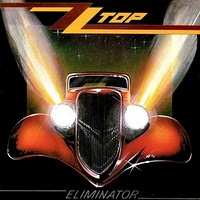 Whilst I admit to only having heard some of ZZ Top’s early albums, I fail to see how Eliminator could be considered a radical change in direction or why loyal fans should be so vociferous in their condemnation. Okay, the odd synthesiser has sneaked into the mix, the singles and videos were played to vomit-inducing levels on MTV and the band found themselves permeated into the mainstream, but is all that really worth getting your knee-length beard in a knot over? If compromises have been made, the result is a high-class exhibition of Texas boogie suffused with sex and booze and….T.V. Dinners. It was the album which put ZZ Top on my map and, if the band were in the business to make money, Eliminator was the licence for the band to print their own. The only downer I can think of was the videos were on such high rotation I eventually suffered from total burnout and had to hide the album away for fear of mental breakdown. Coming back to this today highlights how badly Eliminator has aged. There is no doubting which decade the album was released. Bill Ham has over-produced the album to such an extent that all blemishes and rough edges have been eradicated. The problem is, by doing so, he’s leeched away some of the individuality and quirkiness that made ZZ Top the bearded wonders they were. It’s the equivalent of a model’s face being airbrushed after a magazine photo-shoot only for the process to have been taken to extremes and all her facial features being wiped clean. That said, this is still an enjoyable album. “Gimme All Your Lovin'”, “Sharp Dressed Man”, “Got Me Under Pressure”, “I Got The Six”, “Dirty Dog” and “Bad Girl” bounce along with all the verve of a sweaty roadhouse on a Saturday night but “Legs” has become a victim of its own success; over-exposure has completely removed any enjoyment. Eliminator is no classic but it retains a sense of nostalgic charm that can’t be overlooked. –Ian
Whilst I admit to only having heard some of ZZ Top’s early albums, I fail to see how Eliminator could be considered a radical change in direction or why loyal fans should be so vociferous in their condemnation. Okay, the odd synthesiser has sneaked into the mix, the singles and videos were played to vomit-inducing levels on MTV and the band found themselves permeated into the mainstream, but is all that really worth getting your knee-length beard in a knot over? If compromises have been made, the result is a high-class exhibition of Texas boogie suffused with sex and booze and….T.V. Dinners. It was the album which put ZZ Top on my map and, if the band were in the business to make money, Eliminator was the licence for the band to print their own. The only downer I can think of was the videos were on such high rotation I eventually suffered from total burnout and had to hide the album away for fear of mental breakdown. Coming back to this today highlights how badly Eliminator has aged. There is no doubting which decade the album was released. Bill Ham has over-produced the album to such an extent that all blemishes and rough edges have been eradicated. The problem is, by doing so, he’s leeched away some of the individuality and quirkiness that made ZZ Top the bearded wonders they were. It’s the equivalent of a model’s face being airbrushed after a magazine photo-shoot only for the process to have been taken to extremes and all her facial features being wiped clean. That said, this is still an enjoyable album. “Gimme All Your Lovin'”, “Sharp Dressed Man”, “Got Me Under Pressure”, “I Got The Six”, “Dirty Dog” and “Bad Girl” bounce along with all the verve of a sweaty roadhouse on a Saturday night but “Legs” has become a victim of its own success; over-exposure has completely removed any enjoyment. Eliminator is no classic but it retains a sense of nostalgic charm that can’t be overlooked. –Ian
Townes Van Zandt “Townes Van Zandt” (1969)
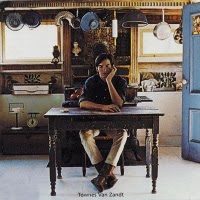 More than any other of Van Zandt’s albums this reflects how unhappy the man must have been with his debut “For The Sake Of The Song.” No less than four of the tracks on here first appeared on that earlier work and, without exception, all are better for the reworking. The lovely Spanish guitar refrains of “For The Sake Of The Song” and “(Quicksilver Daydreams Of) Maria” bring out the best in the plaintive, lovelorn lyrics. “I’ll Be Here In The Morning” is reborn as a tale of a lonesome cowboy heading back home to his true love and “Waiting Around To Die” simply stands as one of Van Zandt’s finest songs. In fact I can give this no more praise than it bears comparison with Dylan’s early folk albums – because, have no doubts, this is a folk album not a country album. And a very sparse one at that. The fact there is so much emotion and feeling on display is down to the voice and the words rather than the music. For instance I have no idea what “Lungs” is really about but it is poetically intense in its imagery and compelling in its tale of loneliness and failure. Equally the depiction of nature as an extension of the human condition in the likes of “Columbine” is both moving and powerful.
More than any other of Van Zandt’s albums this reflects how unhappy the man must have been with his debut “For The Sake Of The Song.” No less than four of the tracks on here first appeared on that earlier work and, without exception, all are better for the reworking. The lovely Spanish guitar refrains of “For The Sake Of The Song” and “(Quicksilver Daydreams Of) Maria” bring out the best in the plaintive, lovelorn lyrics. “I’ll Be Here In The Morning” is reborn as a tale of a lonesome cowboy heading back home to his true love and “Waiting Around To Die” simply stands as one of Van Zandt’s finest songs. In fact I can give this no more praise than it bears comparison with Dylan’s early folk albums – because, have no doubts, this is a folk album not a country album. And a very sparse one at that. The fact there is so much emotion and feeling on display is down to the voice and the words rather than the music. For instance I have no idea what “Lungs” is really about but it is poetically intense in its imagery and compelling in its tale of loneliness and failure. Equally the depiction of nature as an extension of the human condition in the likes of “Columbine” is both moving and powerful.
After listening to a number of Van Zandt’s albums, I’ve come to realise that sometimes the word underrated –although hackneyed and simplistic – is appropriate. To a certain degree, the word undiscovered is also extremely apt in this case because there are a great deal of revered singer-songwriters performing in the same field who don’t come anywhere close to having the sheer emotive power and impact of Van Zandt. He deserves all the plaudits thrown in his direction and I will definitely continue to mine his back catalogue. –Ian
Airto Moreira “Free” (1972)
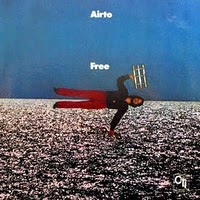 By now, Airto must have released about 30 LPs and played on and spiced up countless albums, yet Free may still be his best. Simply because the conditions were perfect: there are Chick Corea and Keith Jarrett on piano, Ron Carter on bass, the master himself on drums and percussion, Hubert Laws and Joe Farrell on reeds, George Benson on guitar, Don Sebesky with exceptionally good arrangements directing a big band of super-professionals and Rudy van Gelder making sure the recording sound is crystal . There’s a very good version of Return To Forever, there’s this little gem, Lucky Southern on which Keith Jarrett plays a wonderful solo, and there’s the highlight, Flora’s Song and again, it’s Keith Jarrett who along with Don Sebesky, gets the crown. Airto himself? Not just his percussion is top, but also his drumming. A joyful event, whenever the record is played. –Yofriend
By now, Airto must have released about 30 LPs and played on and spiced up countless albums, yet Free may still be his best. Simply because the conditions were perfect: there are Chick Corea and Keith Jarrett on piano, Ron Carter on bass, the master himself on drums and percussion, Hubert Laws and Joe Farrell on reeds, George Benson on guitar, Don Sebesky with exceptionally good arrangements directing a big band of super-professionals and Rudy van Gelder making sure the recording sound is crystal . There’s a very good version of Return To Forever, there’s this little gem, Lucky Southern on which Keith Jarrett plays a wonderful solo, and there’s the highlight, Flora’s Song and again, it’s Keith Jarrett who along with Don Sebesky, gets the crown. Airto himself? Not just his percussion is top, but also his drumming. A joyful event, whenever the record is played. –Yofriend
The Teardrop Explodes “Kilimanjaro” (1980)
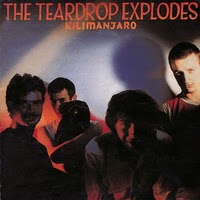 It’s amazing to think that one of the great eccentrics of popular music, Julian Cope, originated from what, on an initial listen, appears to be a straightforward post punk, electronic pop band. Delve a little deeper beneath the swathes of synthesised sound however and those original impression begin to subtlety alter. The lyrics carry an esoteric intelligence which belies their frivolous accompaniment and the unusual inclusion of a brass section is a masterstroke. But, as someone far smarter than me once said, “Just because you don’t understand it doesn’t make it profound”. What gives this album it’s cutting edge is the combination of all these elements which come together to form a frenetic, catchy, cohesive whole. The Teardrop Explodes were cut from the same cloth as Echo And The Bunnymen but their use of synths gave them a far more radio-friendly edge. I love the dumb chorus for “When I Dream” and the pounding drumbeats on “Bouncing Babies” and the way the keyboards seem to jog along with Cope’s voice on “Brave Boys Keep Their Promises”. The brevity of the brass on both “Ha Ha I’m Drowning” and “Treason” is both unexpected and uplifting. In fact the whole of Kilimanjaro can be treated as just an uplifting pop album but there’s far more going on than that. The problem is that whatever is going on is securely locked inside Cope’s mind. Yes there are references to television series The Outer Limits in “Sleeping Gas” and that song also mentions Rafferty, a seventies series staring Patrick McGoohan which was a precursor to Hugh Lawrie’s House, but I’ve no idea why those things are namechecked. Like a line in another song says: “Poppies are in the fields, don’t ask me what that means”. The thing is, you don’t need to know and maybe it’s even better not knowing because you never know what to expect with Cope. Kilimanjaro is often overlooked when discussing post-punk music – it deserves better. –Ian
It’s amazing to think that one of the great eccentrics of popular music, Julian Cope, originated from what, on an initial listen, appears to be a straightforward post punk, electronic pop band. Delve a little deeper beneath the swathes of synthesised sound however and those original impression begin to subtlety alter. The lyrics carry an esoteric intelligence which belies their frivolous accompaniment and the unusual inclusion of a brass section is a masterstroke. But, as someone far smarter than me once said, “Just because you don’t understand it doesn’t make it profound”. What gives this album it’s cutting edge is the combination of all these elements which come together to form a frenetic, catchy, cohesive whole. The Teardrop Explodes were cut from the same cloth as Echo And The Bunnymen but their use of synths gave them a far more radio-friendly edge. I love the dumb chorus for “When I Dream” and the pounding drumbeats on “Bouncing Babies” and the way the keyboards seem to jog along with Cope’s voice on “Brave Boys Keep Their Promises”. The brevity of the brass on both “Ha Ha I’m Drowning” and “Treason” is both unexpected and uplifting. In fact the whole of Kilimanjaro can be treated as just an uplifting pop album but there’s far more going on than that. The problem is that whatever is going on is securely locked inside Cope’s mind. Yes there are references to television series The Outer Limits in “Sleeping Gas” and that song also mentions Rafferty, a seventies series staring Patrick McGoohan which was a precursor to Hugh Lawrie’s House, but I’ve no idea why those things are namechecked. Like a line in another song says: “Poppies are in the fields, don’t ask me what that means”. The thing is, you don’t need to know and maybe it’s even better not knowing because you never know what to expect with Cope. Kilimanjaro is often overlooked when discussing post-punk music – it deserves better. –Ian
Captain Beefheart “Trout Mask Replica” (1969)
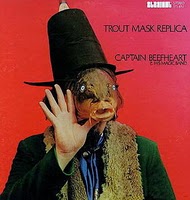 The Captain’s best known album really divides opinion. Some see it as utter unlistenable garbage others see it as some sort of musical nirvana. In truth it probably falls somewhere between the two extremes. It is indeed hard to listen too and it takes time to fully absorb the music. It is like the blues has crashed into an Albert Ayler gig and the two don’t make easy bedfellows. Still there is some incredibly complex and impressive playing contained within. The Rhythm section must have had nightmares when Beefheart turned up with the score, yes every note was written not improvised. Also if possible the lyrics seem even more out there than usual and reside firmly in the leftfield. The album does however contain two of my favourite Beefheart tracks in “Moonlight On Vermont” and “Dachau Blues.” –Jon
The Captain’s best known album really divides opinion. Some see it as utter unlistenable garbage others see it as some sort of musical nirvana. In truth it probably falls somewhere between the two extremes. It is indeed hard to listen too and it takes time to fully absorb the music. It is like the blues has crashed into an Albert Ayler gig and the two don’t make easy bedfellows. Still there is some incredibly complex and impressive playing contained within. The Rhythm section must have had nightmares when Beefheart turned up with the score, yes every note was written not improvised. Also if possible the lyrics seem even more out there than usual and reside firmly in the leftfield. The album does however contain two of my favourite Beefheart tracks in “Moonlight On Vermont” and “Dachau Blues.” –Jon
Badfinger “Wish You Were Here” (1974)
 Simply put Badfinger’s best album, contains no hit singles and was surprisingly pulled from the shelves (which can’t have helped Pete Ham’s fragile mind) but everything here has a cohesion and quality control lacking on other albums. ‘Just A Chance’ is a fabulous rocker, amongst the best of the band’s career, ‘You’re So Fine’, ‘Know One Knows’, ‘Love Time’, ‘King Of The Load’ could all quite conceivably been hit singles, all show the band’s poppier style to fine effect, ‘Got To Get Out Of Here’ and ‘Dennis’ show off a more acoustic, reflective almost countryish style whilst ‘In The Meantime/Some Other Time’ and ‘Meanwhile Back At The Ranch/Should I Smoke’ are pure power pop, lavishly arranged, musically and melodically as inventive as the band was ever to get, it lacks one of Ham’s gorgeous ballads but otherwise this is as good as they ever got, shame then that it was to be the band’s final album before Pete Ham’s suicide, they could have gone on to even better things. –Derek
Simply put Badfinger’s best album, contains no hit singles and was surprisingly pulled from the shelves (which can’t have helped Pete Ham’s fragile mind) but everything here has a cohesion and quality control lacking on other albums. ‘Just A Chance’ is a fabulous rocker, amongst the best of the band’s career, ‘You’re So Fine’, ‘Know One Knows’, ‘Love Time’, ‘King Of The Load’ could all quite conceivably been hit singles, all show the band’s poppier style to fine effect, ‘Got To Get Out Of Here’ and ‘Dennis’ show off a more acoustic, reflective almost countryish style whilst ‘In The Meantime/Some Other Time’ and ‘Meanwhile Back At The Ranch/Should I Smoke’ are pure power pop, lavishly arranged, musically and melodically as inventive as the band was ever to get, it lacks one of Ham’s gorgeous ballads but otherwise this is as good as they ever got, shame then that it was to be the band’s final album before Pete Ham’s suicide, they could have gone on to even better things. –Derek
Free “Free” (1969)
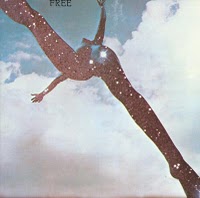 From the moment I heard the opening chords of the funky Stones-like strut “Trouble On Double Time” I was hooked on “Free.” Free’s self-titled second LP is a bit more retrained than Tons of Sobs and more soulful than their breakthrough album, Fire and Water, making it my favorite, and one that holds up to repeated listening. Side one kicks off with the ominous classic “I’ll Be Creepin,” followed by the aforementioned “Trouble” and closes with the hypnotic “Mouthful Of Grass,” a memorable, mostly instrumental track with a choir supplying wordless vocals. Side two doesn’t disappoint as it begins with the heavy blues-rocker “Woman” and ends with the melancholy “Mourning Sad Morning.” For those most familiar with Free through their overplayed hit “All Right Now” or through lead singer Paul Rodgers’ stint in equally overplayed Bad Company check out this early LP and their equally fantastic debut, Tons of Sobs. –David
From the moment I heard the opening chords of the funky Stones-like strut “Trouble On Double Time” I was hooked on “Free.” Free’s self-titled second LP is a bit more retrained than Tons of Sobs and more soulful than their breakthrough album, Fire and Water, making it my favorite, and one that holds up to repeated listening. Side one kicks off with the ominous classic “I’ll Be Creepin,” followed by the aforementioned “Trouble” and closes with the hypnotic “Mouthful Of Grass,” a memorable, mostly instrumental track with a choir supplying wordless vocals. Side two doesn’t disappoint as it begins with the heavy blues-rocker “Woman” and ends with the melancholy “Mourning Sad Morning.” For those most familiar with Free through their overplayed hit “All Right Now” or through lead singer Paul Rodgers’ stint in equally overplayed Bad Company check out this early LP and their equally fantastic debut, Tons of Sobs. –David
Lou Reed “Lou Reed” (1972)
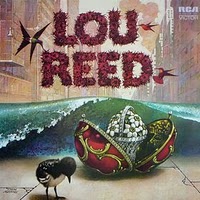 Yes, a couple members of Yes do perform on this, the first solo album by the so-called godfather of punk, but thankfully you rarely sense it. And no, I suppose this isn’t essential Lou Reed; but minor Lou is better than no Lou, and better than most other music, too. These are barebones arrangements, tentative and sketchy, but they point the way to his incredibly strange 70s career as well as taking a rather bleary look back at the last couple of VU records. That is to say, this sounds like the burned out leader of the Velvet Underground has to borrow some of his old band’s tunes in order to get a full album out; but it also sounds like a rock ’n’ roll original busy reinventing himself in new times. So “I Can’t Stand It” gets the 70s guitar-rock treatment, while the version of “Lisa Says” is the same arrangement that we hear on the VU Live 1969 set, injected with even more sleazy soul. There are some real missteps, particularly when Steve Howe makes his presence felt: the first incarnation of “Berlin” starts out well but gets a little goofy, with flourishes thoroughly out of step with Reed’s aesthetic; and “Ride into the Sun” sports a guitar solo that’s simply tasteless. “Walk and Talk It” is another Velvets’ remake that doesn’t come off particularly well, with a Stonesy riff that sounds tossed off and limp. And there’s no question that the take on “Ocean” here is deeply flawed, with tympani and cymbal swells that don’t adhere to the rest of the album’s low-key vibe. But there are at least two lost classics buried here too: the infectious “Wild Child” and the wistful “Love Makes You Feel” seem to me just about essential Reed songs. And yes, it also sounds shitty, production-wise—especially the drums, which sound like ice cream buckets. But this lends the album a trashy Lower East Side feel that I find irresistible. All in all, this is a fine, fine little record that is unjustly overlooked even by his biggest fans. –Will
Yes, a couple members of Yes do perform on this, the first solo album by the so-called godfather of punk, but thankfully you rarely sense it. And no, I suppose this isn’t essential Lou Reed; but minor Lou is better than no Lou, and better than most other music, too. These are barebones arrangements, tentative and sketchy, but they point the way to his incredibly strange 70s career as well as taking a rather bleary look back at the last couple of VU records. That is to say, this sounds like the burned out leader of the Velvet Underground has to borrow some of his old band’s tunes in order to get a full album out; but it also sounds like a rock ’n’ roll original busy reinventing himself in new times. So “I Can’t Stand It” gets the 70s guitar-rock treatment, while the version of “Lisa Says” is the same arrangement that we hear on the VU Live 1969 set, injected with even more sleazy soul. There are some real missteps, particularly when Steve Howe makes his presence felt: the first incarnation of “Berlin” starts out well but gets a little goofy, with flourishes thoroughly out of step with Reed’s aesthetic; and “Ride into the Sun” sports a guitar solo that’s simply tasteless. “Walk and Talk It” is another Velvets’ remake that doesn’t come off particularly well, with a Stonesy riff that sounds tossed off and limp. And there’s no question that the take on “Ocean” here is deeply flawed, with tympani and cymbal swells that don’t adhere to the rest of the album’s low-key vibe. But there are at least two lost classics buried here too: the infectious “Wild Child” and the wistful “Love Makes You Feel” seem to me just about essential Reed songs. And yes, it also sounds shitty, production-wise—especially the drums, which sound like ice cream buckets. But this lends the album a trashy Lower East Side feel that I find irresistible. All in all, this is a fine, fine little record that is unjustly overlooked even by his biggest fans. –Will


